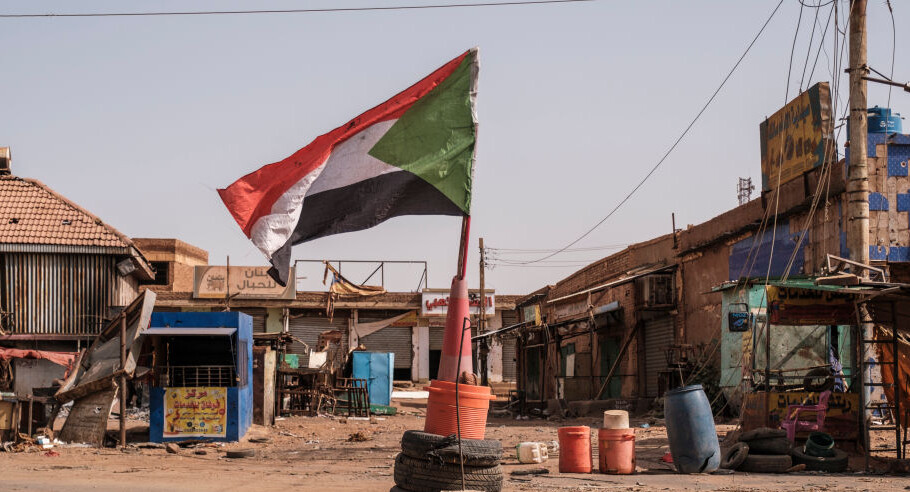Secular forces in Sudan are calling for Sudan’s Islamist movement to be classified as a terrorist group. This is happening as Congress considers legislation to designate the Muslim Brotherhood a terrorist organization and following unprecedented demands from Arab nations that Hamas, a branch of the Brotherhood, disarm and dissolve. Meanwhile, Egypt — one of the main backers of the Sudanese Armed Forces (SAF) — arrested a key Islamist ally of the Khartoum government, signaling that even regional supporters of Sudan’s military are growing wary of its Islamist factions.
Sudan’s Civil Democratic Alliance of Revolutionary Forces (Sumud), led by former Prime Minister Abdalla Hamdok, has urged the international community to criminalize and isolate the National Congress Party (NCP) and the Sudanese Islamic Movement (SIM). Sumud is an urban coalition of professional and labor unions that played a major role in toppling the NCP regime.
The NCP governed Sudan from 1989 until a popular uprising overthrew it in 2019. Since then, its leaders, notably former Foreign Minister Ali Karti, have reemerged as key figures in SIM.
Sumud accuses the NCP of committing genocide, particularly in Darfur, and holds SIM responsible for inciting and sustaining the ongoing conflict between SAF and their auxiliary militias, the Rapid Support Forces (RSF). The United States has accused the SAF of using chemical weapons and the RSF of genocide while also implicating Karti and SIM in sabotaging reconciliation efforts. Over the past six months, each warring faction has established its own governing body. The SAF’s “Hope Government” plans to relocate from Port Sudan to Khartoum, which the military recaptured from the militias in March, while the RSF’s government, Tasis (Arabic for “founding”), has established Nyala, near Sudan’s western border with Chad, as its capital.
In its statement, Sumud accused the NCP, and now its successor SIM, of undermining democratic processes to maintain undisputed control. The NCP “overthrew the pluralistic democratic system on June 30, 1989,” Sumud argued. “Their leader, Ali Osman Mohamed Taha, declared before their Shura Council, amidst cheers of Allahu Akbar, that if they lost power, they would repeat their 1989 action.”
This is exactly what the Islamists did, Sumud said, when “they overthrew the democratic transition that had started on October 25, 2021.” Islamists did so by “exploiting the ambitions of the leadership” of both SAF and RSF and inciting the two sides to engage in civil war that broke out on April 15, 2023. Islamists also “committed crimes based on identity, dropped barrel bombs on civilians, burned villages and their inhabitants, and employed starvation, sexual violence, and rape as weapons of war.”
Under the NCP, Sudan hosted al-Qaeda leader Osama bin Laden for five years, during which Khartoum was implicated in the attacks on U.S. embassies in Kenya and Tanzania in 1998 and the USS Cole in the Gulf of Aden in 2000. Twenty years later, U.S. courts ordered Sudan to pay punitive damages to victims of these attacks.
Sumud also accused Sudan’s Islamists of ties to Iran, with reports alleging that Tehran supplied SAF with explosive attack drones. Peace is only possible if Sudan’s Islamist movement is “weakened, isolated, and punished,” its statement said. Furthermore, SIM opposes power sharing and has offered to end the SAF-RSF conflict only if the RSF “accepted a minor partnership with them in sharing power and resources.” To Sumud, this confirms that Sudan’s “Islamist movement sees no pathway for ending the fighting other than the complete submission of the Sudanese people to its terrorist regime, an arrangement that has never achieved peace” in the past and will not in the future.
Sudan’s secular forces have not been alone in their alarm at the resurgence of the country’s Islamists. Egypt, a staunch SAF ally, this week arrested Almosbah Abuzeyd, leader of the al-Bara Battalion, a notoriously brutal Islamist militia fighting alongside the SAF. Abuzeyd was detained by Egyptian secret police while receiving treatment in Alexandria, prompting SAF to urgently lobby Cairo for his release. On Wednesday, a video surfaced of Abuzeyd free and thanking everyone for their support during his detention.
The resurgence of the Muslim Brotherhood in Sudan, through groups like SIM and the al-Bara Battalion, is a growing concern warranting global attention. Sudan’s secular democratic alliance has raised its voice, and even Khartoum’s allies have chosen to act against Sudanese Islamists.
Congress now has an opportunity to intensify the pressure on Sudan’s Islamists and others across the region who are part of the Muslim Brotherhood network. This could help end the war in Sudan while tamping down the sources of extremism everywhere the Islamists are active.

